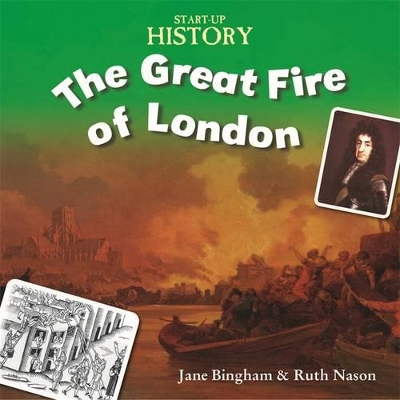
Key Stage 3 History by Aaron Wilkes: Renaissance, Revolution and Reformation: Britain 1509-1745 Student Book
No. of pages 160
Published: 2014
Add this book to your 'I want to read' list!
By clicking here you can add this book to your favourites list. If it is in your School Library it will show up on your account page in colour and you'll be able to download it from there. If it isn't in your school library it will still show up but in grey - that will tell us that maybe it is a book we should add to your school library, and will also remind you to read it if you find it somewhere else!
This book features in the following series: History, Ks3 History .
There are 160 pages in this book.
It is aimed at Young Adult readers. The term Young Adult (YA) is used for books which have the following characteristics: (1) aimed at ages 12-18 years, US grades 7-12, UK school years 8-15, (2) around 50-75k words long, (3) main character is aged 12-18 years, (4) topics include self-reflection, internal conflict vs external, analyzing life and its meaning, (5) point of view is often in the first person, and (6) swearing, violence, romance and sexuality are allowed.
This book was published in 2014 by Oxford University Press .
Aaron Wilkes is an experienced author and History teacher at Castle High School, Dudley.
This book has the following chapters: LIFE IN TUDOR BRITAIN; A WORLD OF DISCOVERY; ELIZABETH I; THE STUARTS; ENGLAND AT WAR; CROMWELL'S COMMONWEALTH; THE RESTORATION; CHANGE OVER TIME
Renaissance, Revolution & Reformation by Aaron Wilkes is a very good book. The author has produced a very accessible text with a variety of activities which will interest, excite and stimulate young historians. I particularly like the problem based approach which gives insight into a broad spectrum of both social and political issues of the period. An engaging text book which students and teachers alike will find most useful. I think Aaron has produced a good book. It is accessible for those that do not like reading large quantities of material; there is lots of colour, fun clear diagrams and good maps; youngsters will particularly like the cartoon characters in many of the exercises. I also like the chronological approach and the clarity with which particular topics have been presented. There is a good variety of exercises, particularly the assessment tasks, that can easily be differentiated. * Paul Barter, Stover School, Devon *



